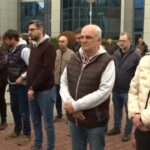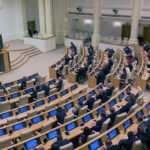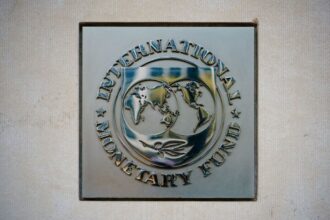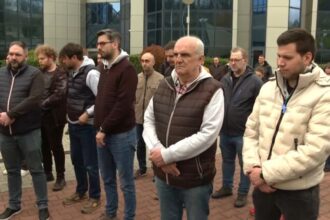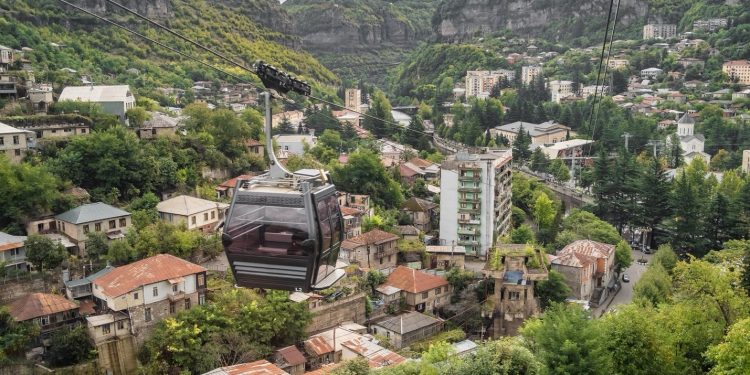Interview with Kesaria Kathcharava
As climate change continues posing significant challenges around the world, grassroots organizations are emerging to play a vital role in fostering resilience as well as promoting environmental stewardship. Mkhardamkhar Association is one such organization that has made a significant impact in the Chiatura Municipality of Georgia. Through dedicated efforts to combat soil degradation and raise environmental awareness, Mkhardamkhar is empowering local residents–especially women and youth–to take an active role in environmental decision-making.
The association was founded in 2013 with the mission to increase civic engagement and develop young people as engaged citizens. This mission is especially urgent in Chiatura where unsystematic mining, particularly of manganese, led to severe environmental degrading, including soil depletion and increased CO2 emissions. Mkhardamkhar, recognizing these challenges focused on projects that would restore degraded soils while mitigating the effects of climate change.
In their recent initiative, the association sought to increase community understanding of climate issues, while engaging residents in restoration activities. Their project was awarded in a special grant category, which focused on using Nature Based Solutions (NbS), to combat land degradation and drought. It was supported by the IUCN – Austrian Development Cooperation Project – Restoring Ecosystems To Reduce Drought and Increase Resilience. Mkhardamkhar Association, as part of the grant project scope, prepared plots for plantation, conducted soil lab studies to determine the necessary bio-fertilizers and organized training sessions in order to educate local residents about climate change and civic engagement. These trainings covered topics such as energy efficiency and modern technology in combating climate changes. Their activities are an example of Nature-based Solutions driven by the community.
The association’s efforts culminated in a petition, prepared in collaboration with Imereti Climate Action Group. The petition was signed by members of the community and called for municipal funding in order to combat soil degradation caused by mining. The local government responded positively by allocating 30,000 GEL specifically for soil restoration in the budget of 2024.
These initiatives have had a positive impact on the lives of many people. The Mkhardamkhar Association planted hundreds of saplings including acacias and paulownias on designated plots. This afforestation enhances local biodiversity and also plays a vital role in carbon sequestration.
GEORGIA NOW spoke with Teona Kapanadze, a Mkhardamkhar representative, to gain a deeper understanding of the organization’s impact and mission. Here’s what Teona Kapanadze shared:
What was the motivation behind the Mkhardamkhar Association’s establishment?
The association was founded in 2013 with a main goal to increase civic activity and foster young people as active citizens. We chose to focus our attention on projects that address the environmental challenges posed by climate change and unsystematic mining in Chiatura.
How does the mining industry contribute to climate change?
The extraction of manganese both above and underground leads to soil degradation, increased CO2 emission, deforestation and water pollution. These factors have a negative impact on local ecosystems and contribute to climate changes. It was important to recognize these problems in order to mobilize our community and implement prevention measures.
What trainings did you conduct?
We organized two major trainings. The first, entitled “Active Citizen”, focused on the participation of citizens in decision making processes. The municipality then supported our petition for soil re-creation. The second training was on “Climate Change and Modern Technologies.” We discussed the causes and effects of climate change, as well as ways to mitigate it.
What were the results from your soil studies?
Our soil laboratory tests revealed the extent of soil damage and depletion. We identified bio-fertilizers that would restore and enrich soil based on our findings. This led us to decide to plant a variety of trees, including conifers and flowering species, as well as implement an irrigation system in order to ensure their survival during dry periods.
What are the long-term effects you expect from your project?
Our measures are expected to provide long-term benefits. The newly planted trees and restored soils will improve the local biodiversity, and the restored soils will improve air quality by absorbing and releasing CO2. We also developed soil recovery methods that local government and entrepreneurs can adopt in the future. This will ensure sustainable practices continue after our project.
The Mkhardamkhar Association is a great example of how local communities can address environmental challenges effectively through education, advocacy and active participation. By empowering local residents to take responsibility for their environmental stewardship they not only restore their local ecosystems, but also foster a culture of civic engagement and sustainability that will benefit future generation. The association’s vital work is a testament to community-driven action against climate change.
CENN has implemented a four-year program, the Georgia Climate Action Program with the financial assistance of the European Union, since 2021. The project is being implemented in four regions: Kakheti Imereti Guria Racha-Lechkhumi. Its goal is to increase the civil society’s engagement in developing and implementing climate change policies.
CENN, as part of its project, announced a competition for innovative ideas on climate adaptation and mitigation. Mkhardamkhar was awarded a grant in a special category, focusing on Nature-based Solutions to combat land degradation and drought. The project Restoring Ecosystems To Reduce Drought and Increase Resilience, co-funded by IUCN and Austrian Development Cooperation, also supported the organisation.
Read More @ georgiatoday.ge


